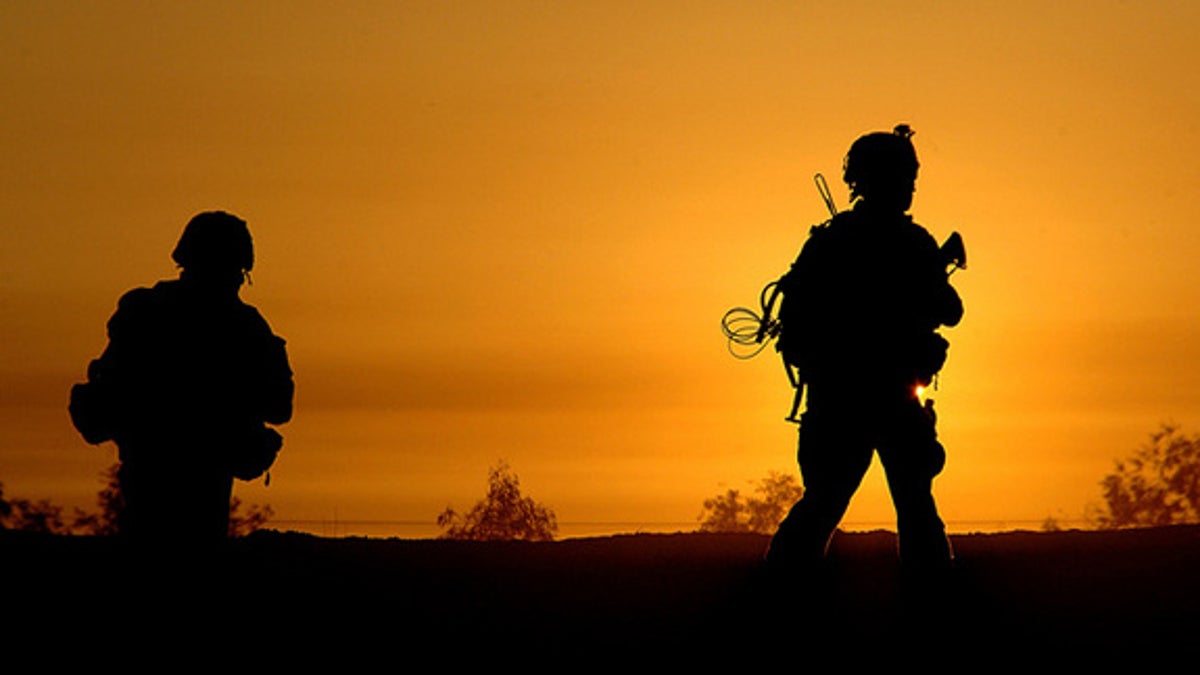
U.S. Army Soldiers from the 2nd Brigade Combat Team, 3rd Infantry Division cross a bridge to Al Zunbria, Iraq, Dec. 29, 2007, during operations to secure the area south of their area of operation. (Spc. Angelica Golindano)
Men and women veterans who experienced sexual assault or repeated, threatening sexual harassment while serving in the military are at heightened risk of suicide, according to a recent U.S. study.
Researchers with the department of Veterans Affairs found that men with a history of what the VA calls military sexual trauma (MST) are 70 percent more likely than fellow vets without such experience to commit suicide, and women veterans with MST are more than twice as likely as other female vets to do so.
"The study found that those veterans who died by suicide were significantly more likely to be treated for mental health conditions that were related to their MST experience," noted Susan McCutcheon, national mental health director for family services, women's mental health and MST at the Veterans Health Administration.
If mental health conditions like depression or post-traumatic stress disorder - which are themselves strong risk factors for suicide - stem from the MST experience, that may explain the connection between MST and suicide, said McCutcheon, who was not involved in the study but spoke on behalf of the VHA.
The results also highlight the importance of MST awareness and associated mental health conditions as risk factors for suicide, McCutcheon told Reuters Health by email, as well as the potential benefits of mental health treatment that addresses these experiences and related mental health conditions.
The study team, led by Dr. Rachel Kimerling at the VA Palo Alto Health Care System in Menlo Park, California, analyzed records for nearly 6 million men and 361,000 women veterans who received VA healthcare from 2007 to 2011 and were screened for military sexual trauma.
They found that MST was reported by 1.1 percent of men and 21.2 percent of women.
A total of 9,017 veterans died by suicide during this period, Kimerling and her colleagues report in the American Journal of Preventive Medicine.
Among both men and women, suicide rates were higher among veterans who had reported MST, even after researchers accounted for other risk factors like other health conditions, rural residence and mental health conditions.
Out of all the suicides during this period, the researchers calculated that for the men, between 25 and 61 could be attributed to MST and for women, that range was 26 to 49.
This investigation represents one of the first population-based studies to establish sexual trauma as a risk factor for suicide in both women and men, write Kimerling and her colleagues, who were not available to comment on the study.
The VA is very proactive in screening for MST and in providing treatment for those who can benefit from it, McCutcheon said. Not all vets come forward, however. "Disclosure of sexual trauma has potential for psychological distress in any population, and we respect a veteran's right to decline MST screening," she said.
Because of the clinical importance of this information, veterans who decline to answer the screen are screened again in one year so that the information can be obtained if the individual feels ready to disclose it, McCutcheon noted.
In May 2015, the screening process was updated to enhance its ability to detect MST and to make it easier for vets to disclose, she added. "The revised MST screening process also capitalizes on screening as an opportunity to provide all veterans with information about VA's specialized MST services, regardless of whether or not they disclose MST," McCutcheon said. "In conjunction, VHA has engaged in efforts to provide staff with additional training opportunities on how to screen and respond sensitively to disclosures of MST."
